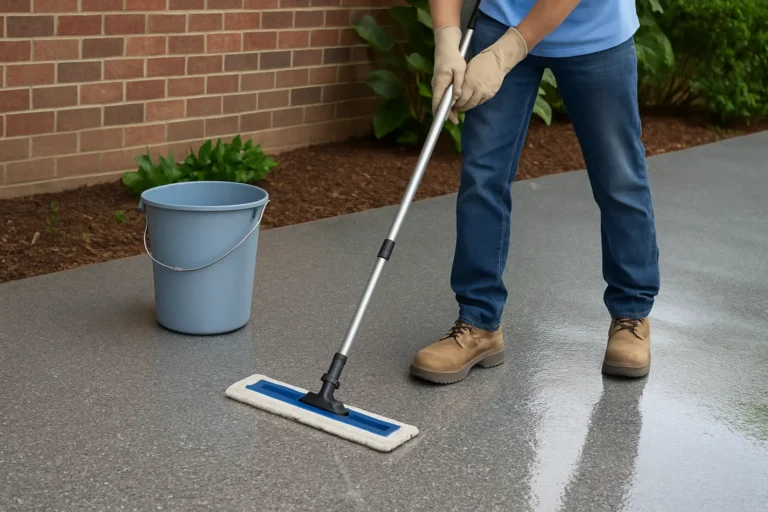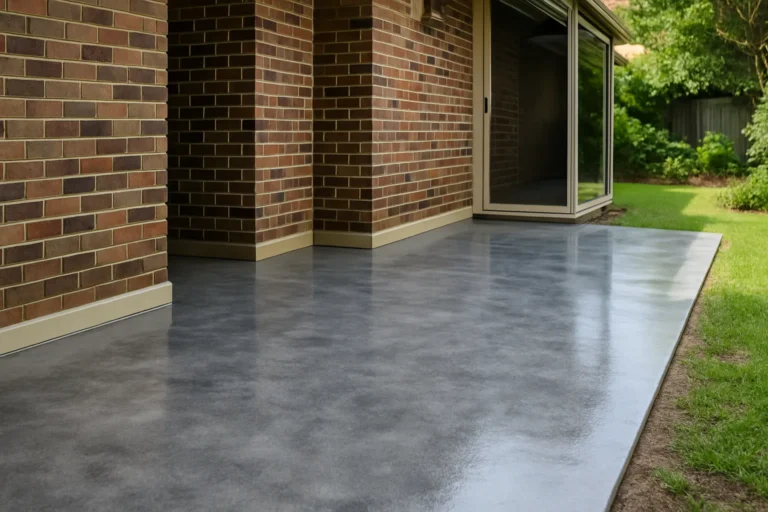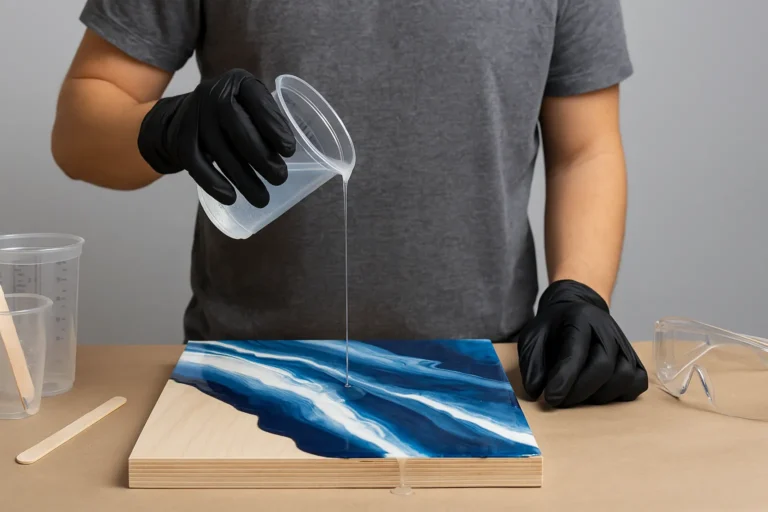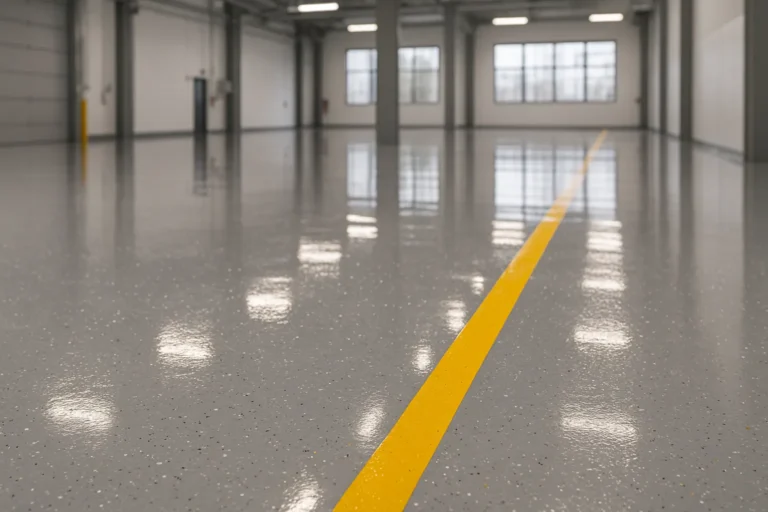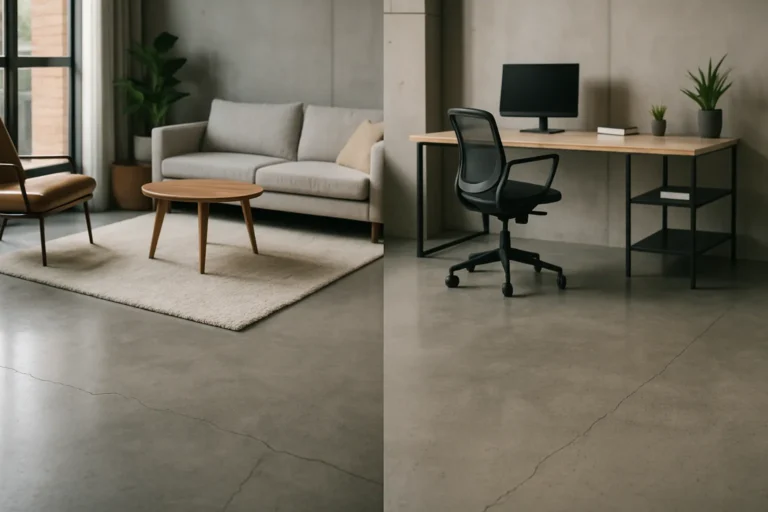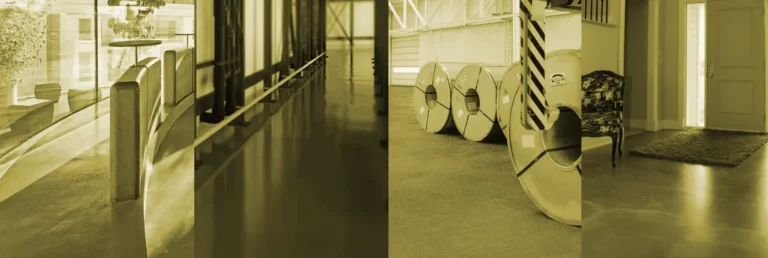What is Microcement Material?
Microcement is a versatile and innovative material that has gained popularity in modern interior design. It is a cement-based coating that can be applied to various surfaces, including countertops, walls, and floors. The material is composed of cement, water-based resins, additives, and mineral pigments, which together create a durable and aesthetically pleasing finish. Microcement is known for its thin application, typically around 2-3 millimeters, which makes it an excellent choice for overlaying existing surfaces without adding significant weight or thickness.
- Composition : Cement, water-based resins, additives, mineral pigments
- Application Thickness : 2-3 millimeters
- Versatility : Suitable for countertops, walls, and floors
The Rise of Microcement in Modern Design
The rise of microcement in modern design can be attributed to its unique combination of durability, aesthetic appeal, and ease of application. Designers and homeowners alike appreciate the seamless, contemporary look that microcement provides. Its ability to be customized in terms of color and texture makes it a popular choice for those looking to create a personalized and stylish space. Additionally, the material’s resistance to moisture and stains makes it ideal for high-traffic areas like kitchens and bathrooms.
- Durability : Long-lasting and resistant to wear
- Aesthetic Appeal : Customizable in color and texture
- Moisture Resistance : Ideal for kitchens and bathrooms
Advantages of Microcement Countertops
Easy Maintenance and Cleaning
One of the standout advantages of microcement countertops is their ease of maintenance and cleaning. The seamless surface means there are no grout lines or joints where dirt and grime can accumulate. A simple wipe with a damp cloth and mild detergent is usually sufficient to keep the countertop looking pristine.
- Seamless Surface : No grout lines or joints
- Cleaning : Easy to wipe with a damp cloth and mild detergent
Humidity Resistance and Longevity
Microcement countertops are highly resistant to humidity, making them an excellent choice for kitchens and bathrooms. The material’s composition ensures that it does not absorb moisture, which helps in preventing mold and mildew growth. This resistance to humidity also contributes to the longevity of the countertop, ensuring it remains in good condition for years.
- Humidity Resistance : Prevents mold and mildew growth
- Longevity : Durable and long-lasting
Functional Durability
Microcement is known for its functional durability. It can withstand daily wear and tear, making it suitable for busy households. The material is also resistant to scratches and impacts, ensuring that the countertop maintains its appearance even with regular use.
- Wear and Tear : Withstands daily use
- Scratch Resistance : Maintains appearance
Aesthetic Appeal and Color Options
The aesthetic appeal of microcement countertops is one of their most significant advantages. The material can be customized in a wide range of colors and finishes, allowing homeowners to achieve the exact look they desire. Whether you prefer a smooth, matte finish or a more textured, rustic look, microcement can deliver.
- Customization : Wide range of colors and finishes
- Aesthetic Options : Smooth, matte, textured, rustic
Overlaying on Existing Countertops
Another advantage of microcement countertops is their ability to be applied over existing surfaces. This makes it a cost-effective and time-saving option for renovations. There is no need to remove the old countertop, which reduces labor costs and minimizes disruption.
- Cost-Effective : No need to remove existing surfaces
- Time-Saving : Quick application process
Types of Microcement Countertops 
Smooth Finish Countertops
Smooth finish countertops offer a sleek and modern look. The surface is polished to a high sheen, providing a reflective quality that enhances the overall aesthetic of the kitchen or bathroom. This type of finish is ideal for contemporary designs and minimalist spaces.
- Look : Sleek and modern
- Surface : Polished to a high sheen
- Ideal For : Contemporary and minimalist designs
Rustic Finish Countertops
Rustic finish countertops provide a more textured and natural appearance. This type of finish is perfect for those who prefer a more organic and earthy look. The texture adds character and depth to the countertop, making it a focal point in any room.
- Look : Textured and natural
- Surface : Adds character and depth
- Ideal For : Organic and earthy designs
Textured Finish Countertops
Textured finish countertops offer a unique and tactile experience. The surface can be customized with various patterns and textures, providing a one-of-a-kind look. This type of finish is perfect for those who want to make a bold design statement.
- Look : Unique and tactile
- Surface : Customizable patterns and textures
- Ideal For : Bold design statements
Matte Finish Countertops
Matte finish countertops provide a subtle and understated look. The non-reflective surface is perfect for those who prefer a more muted and sophisticated aesthetic. This type of finish is ideal for traditional and classic designs.
- Look : Subtle and understated
- Surface : Non-reflective
- Ideal For : Traditional and classic designs
Creating Your Microcement Countertop
Surface Preparation for Microcement Application
Proper surface preparation is crucial for the successful application of microcement. The existing surface must be clean, dry, and free of any contaminants. Any cracks or imperfections should be repaired to ensure a smooth and even application.
- Clean Surface : Free of contaminants
- Dry Surface : No moisture
- Repair Imperfections : Ensure smooth application
Primer Application: The First Step
The first step in creating a microcement countertop is the application of a primer. The primer helps to create a strong bond between the existing surface and the microcement. It also helps to seal the surface, preventing any moisture from penetrating the microcement layer.
- Bonding : Creates a strong bond
- Sealing : Prevents moisture penetration
- First Step : Essential for successful application
Base Coat Application: Building the Foundation
The base coat is the foundation of the microcement countertop. It provides the initial layer of coverage and helps to create a smooth and even surface. The base coat is typically applied in thin layers, allowing each layer to dry before applying the next.
- Foundation : Initial layer of coverage
- Smooth Surface : Ensures even application
- Thin Layers : Allow each layer to dry
Microcement Application: Achieving the Desired Look
The microcement application is where the desired look is achieved. The material is applied in thin layers, with each layer being carefully smoothed and textured to create the desired finish. This step requires skill and precision to ensure a high-quality result.
- Desired Look : Achieved through careful application
- Thin Layers : Smoothed and textured
- Skill and Precision : Ensures high-quality result
Sealing the Microcement: Ensuring Durability
Sealing the microcement is the final step in the process. The sealer helps to protect the surface from stains, moisture, and wear. It also enhances the color and finish of the microcement, ensuring that the countertop remains beautiful and durable for years to come.
- Protection : From stains, moisture, and wear
- Enhancement : Color and finish
- Durability : Long-lasting protection
DIY Microcement Countertops 
Step-by-Step Guide to DIY Microcement Countertops
Creating a microcement countertop can be a rewarding DIY project. The process involves several steps, including surface preparation, primer application, base coat application, microcement application, and sealing. Each step must be carefully followed to ensure a successful result.
- Surface Preparation : Clean and repair the existing surface
- Primer Application : Apply a bonding primer
- Base Coat Application : Build the foundation with thin layers
- Microcement Application : Achieve the desired look with skill and precision
- Sealing : Protect the surface with a sealer
Tools and Materials Needed for DIY Application
To create a microcement countertop, you will need several tools and materials. These include a trowel, mixing bucket, primer, base coat, microcement, sealer, and protective gear. Having the right tools and materials is essential for a successful DIY project.
- Trowel : For applying the microcement
- Mixing Bucket : For mixing the materials
- Primer : For bonding the microcement
- Base Coat : For building the foundation
- Microcement : For achieving the desired look
- Sealer : For protecting the surface
- Protective Gear : For safety during application
Professional Installation of Microcement Countertops
The Benefits of Professional Installation
While DIY microcement countertops can be a rewarding project, professional installation offers several benefits. Professionals have the experience and expertise to ensure a high-quality result. They also have access to specialized tools and materials that may not be available to DIY enthusiasts.
- Experience and Expertise : Ensures high-quality result
- Specialized Tools and Materials : Access to professional-grade products
- Time-Saving : Faster and more efficient installation
Finding the Right Installer for a Seamless Finish
Finding the right installer is crucial for achieving a seamless finish. Look for installers with experience in microcement applications and a portfolio of completed projects. Reading reviews and asking for references can also help you find a reputable installer.
- Experience : Look for experienced installers
- Portfolio : Review completed projects
- References : Ask for references and read reviews
Cost and Maintenance of Microcement Countertops
Understanding the Cost Factors
The cost of microcement countertops can vary depending on several factors. These include the size of the countertop, the complexity of the design, and the cost of materials and labor. On average, microcement countertops can range from $60 to $100 per square foot.
- Size : Larger countertops cost more
- Design Complexity : Intricate designs may increase costs
- Materials and Labor : Affects overall cost
Maintenance Tips for Long-Lasting Countertops
Maintaining microcement countertops is relatively easy. Regular cleaning with a damp cloth and mild detergent is usually sufficient. Avoid using abrasive cleaners or scrubbing pads, as these can damage the surface. Periodically resealing the countertop can also help to maintain its appearance and durability.
- Regular Cleaning : Damp cloth and mild detergent
- Avoid Abrasive Cleaners : Prevent surface damage
- Periodic Resealing : Maintain appearance and durability
Customization and Functionality
Integrating Sinks and Drainage Grooves
Microcement countertops can be customized to include integrated sinks and drainage grooves. This adds functionality and convenience to the countertop, making it more practical for everyday use. The seamless integration of sinks and grooves also enhances the overall aesthetic of the countertop.
- Integrated Sinks : Adds functionality and convenience
- Drainage Grooves : Practical for everyday use
- Seamless Integration : Enhances aesthetic
Custom Cut Outs for Enhanced Functionality
Custom cut outs can be made in microcement countertops to accommodate appliances, fixtures, and other features. This enhances the functionality of the countertop and allows for a more personalized design. Custom cut outs can be made for stovetops, faucets, and other kitchen or bathroom fixtures. Microcement flooring comparison Microcement floors are thin and strong like regular cement but smoother and come in many colors while regular cement is thicker and usually gray Microcement terrazzo comparison Microcement is smoother and thinner while terrazzo has colorful stones mixed in both are used for floors and walls but look different when finished
Microcement premium materials are special coatings that make floors and walls look smooth and fancy They are strong and come in many colors for people who want their homes to look modern Nearby microcement professionals are skilled workers who can apply smooth concrete-like finishes to floors and walls They offer their services in your local area for home and business renovations
Budget-friendly Microcement Dubai offers affordable options for stylish flooring and walls You can get a modern look without spending too much with Polished microcement floors are smooth and shiny surfaces made from a special cement mix They are popular in modern homes and buildings because they look sleek and are easy to clean
Microcement brands compared Different companies make microcement with their own special recipes some are stronger while others look nicer when applied to floors and walls Durable museum surfaces are special materials used in museums that can withstand lots of touching and cleaning without getting damaged These surfaces help protect exhibits and make sure they stay in good condition for a long time
Microcement flooring aesthetics Microcement showcases elevate boutique displays by adding a sleek and modern look to store shelves and counters The smooth finish of microcement helps products stand out and catch customers’ eyes Contemporary kitchen microcement
- Appliances and Fixtures : Accommodate various features
- Personalized Design : Enhances functionality
- Custom Cut Outs : For stovetops, faucets, etc.
Microcement Countertops vs. Concrete Countertops
Comparing Stain Resistance and Hygiene
When comparing microcement countertops to concrete countertops, one of the key differences is stain resistance and hygiene. Microcement countertops are more resistant to stains and easier to clean, making them a more hygienic option. Concrete countertops, on the other hand, are more porous and can absorb stains more easily.
- Stain Resistance : Microcement is more resistant
- Hygiene : Easier to clean and maintain
- Porosity : Concrete is more porous
FAQs on Microcement Countertops
Can Microcement Be Applied Over Any Kitchen Countertop?
Yes, microcement can be applied over most existing kitchen countertops. The surface must be clean, dry, and free of any contaminants. Proper surface preparation is essential for a successful application.
How Much Do Microcement Countertops Typically Cost?
Microcement countertops typically cost between $60 and $100 per square foot. The final cost can vary depending on the size of the countertop, the complexity of the design, and the cost of materials and labor.
How Long Do Microcement Countertops Last?
Microcement countertops are known for their durability and can last for many years with proper maintenance. Regular cleaning and periodic resealing can help to extend the lifespan of the countertop.
Are Microcement Countertops Suitable for Outdoor Kitchens?
Yes, microcement countertops are suitable for outdoor kitchens. The material is resistant to moisture and temperature changes, making it a durable option for outdoor use.
How to Repair Damages on Microcement Countertops?
Minor damages on microcement countertops can be repaired with a touch-up kit. For more significant damages, it may be necessary to reapply a layer of microcement. Professional repair services are also available for extensive damages.
